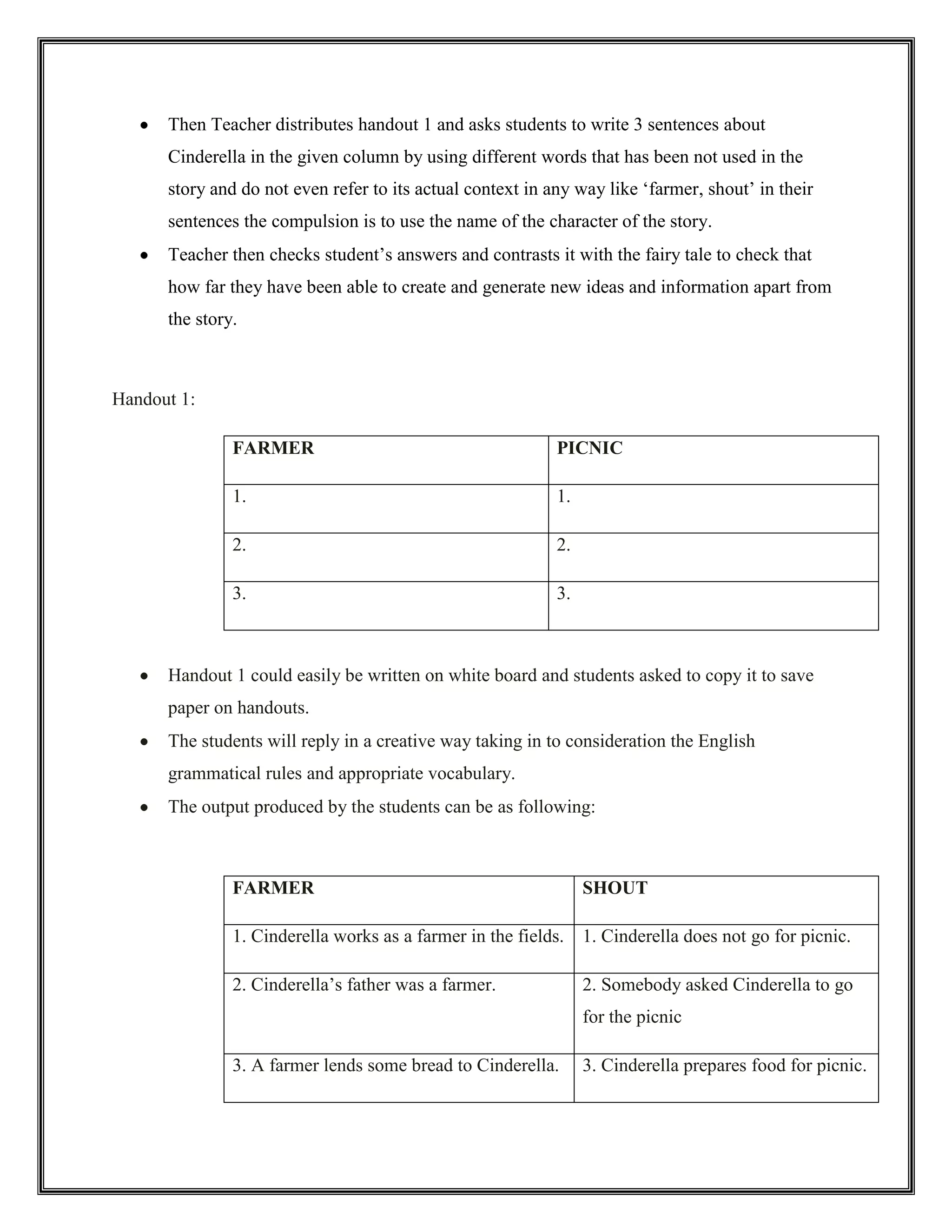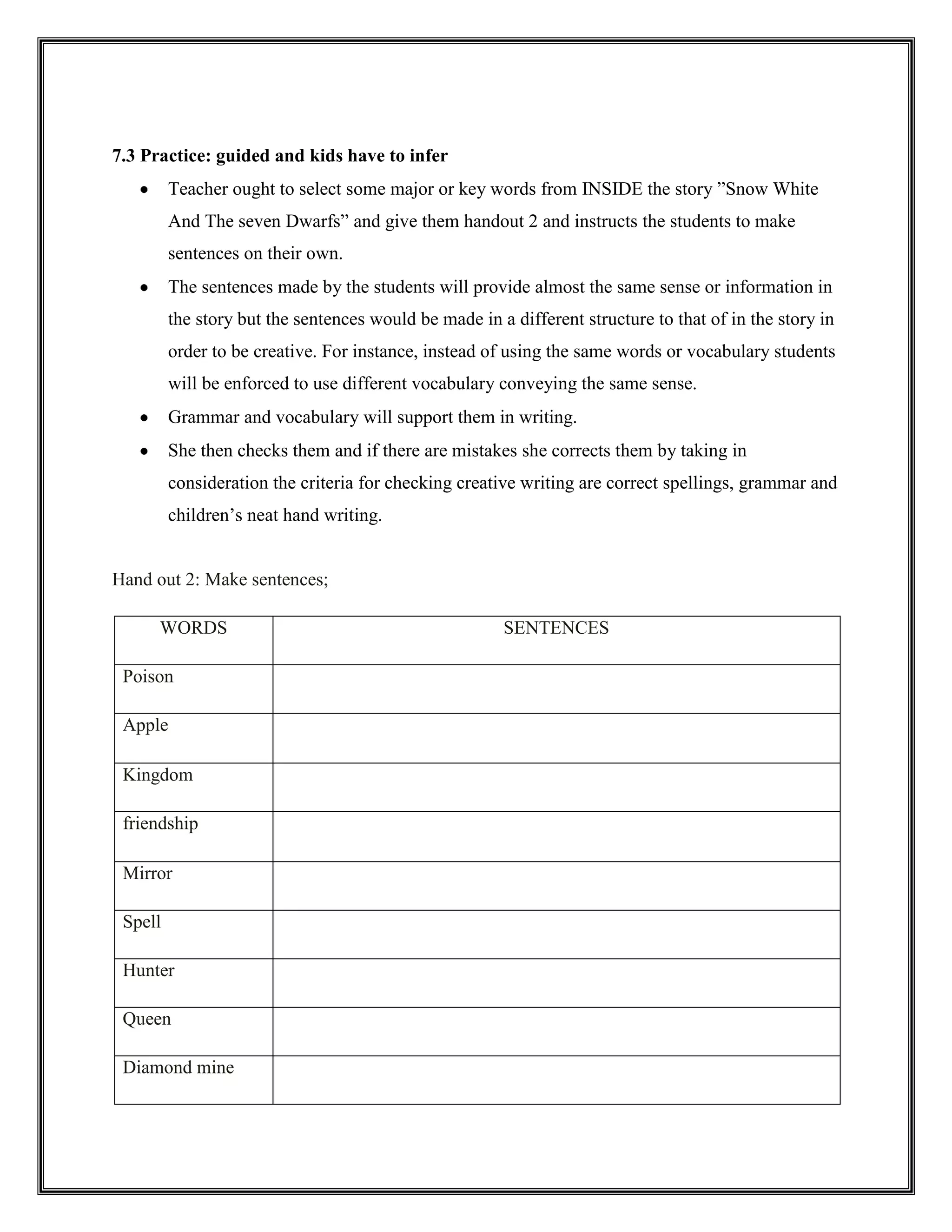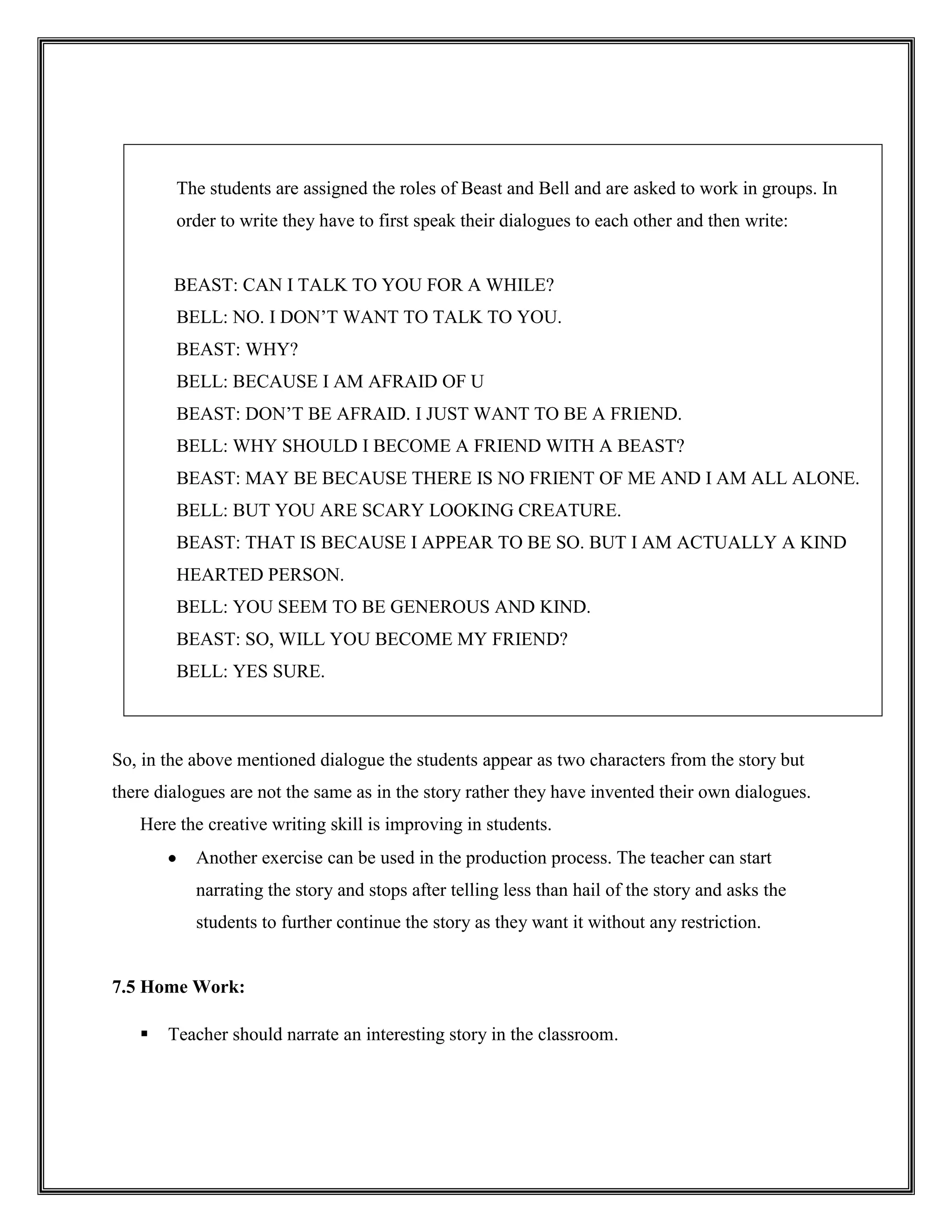This document outlines a project for teaching creative writing skills to students through analyzing short stories and fairy tales. The objectives are to provide opportunities for students to practice writing and receive feedback to improve their abilities. Activities include discussing characters from stories, writing original dialogues, and continuing an unfinished narrative. Students practice using new vocabulary and sentence structures creatively without directly copying from the source texts. The goal is for students to gain confidence in writing for different purposes and to develop their imagination. Analyzing examples allows students to learn effective writing techniques.








